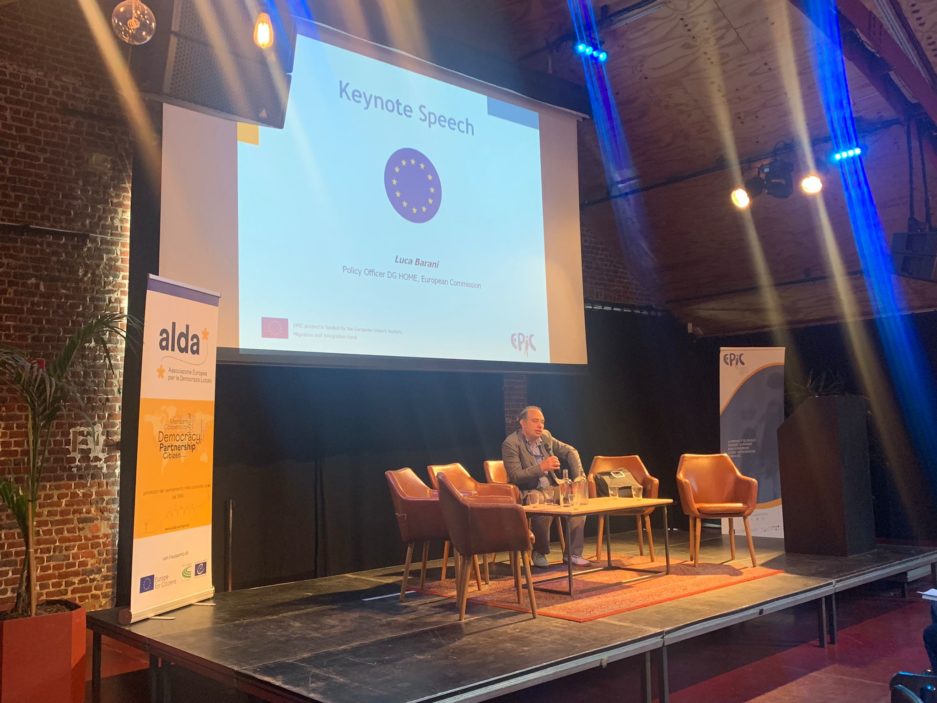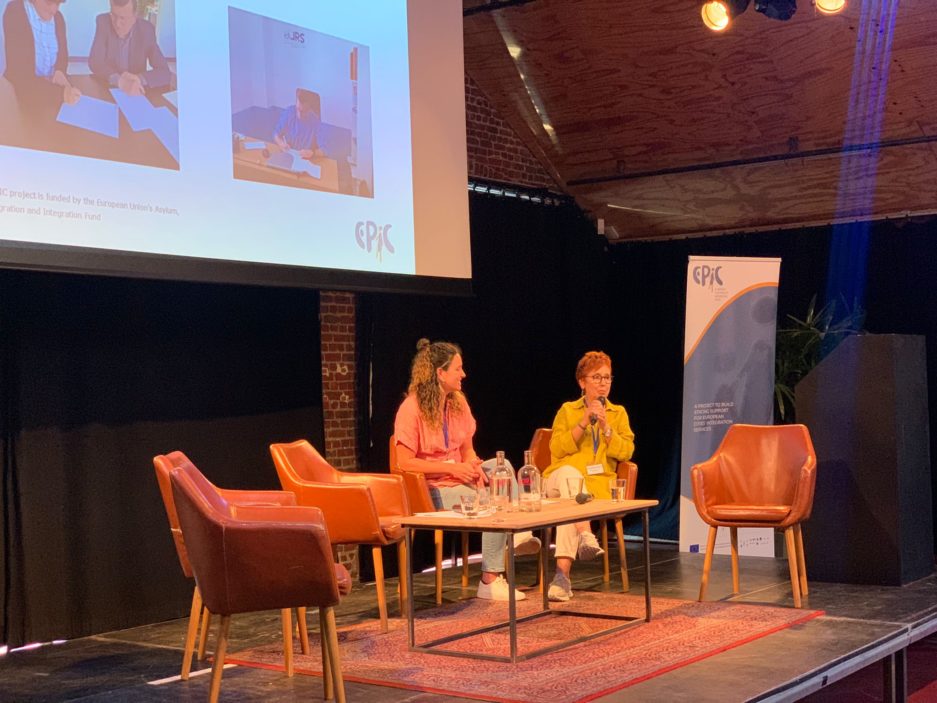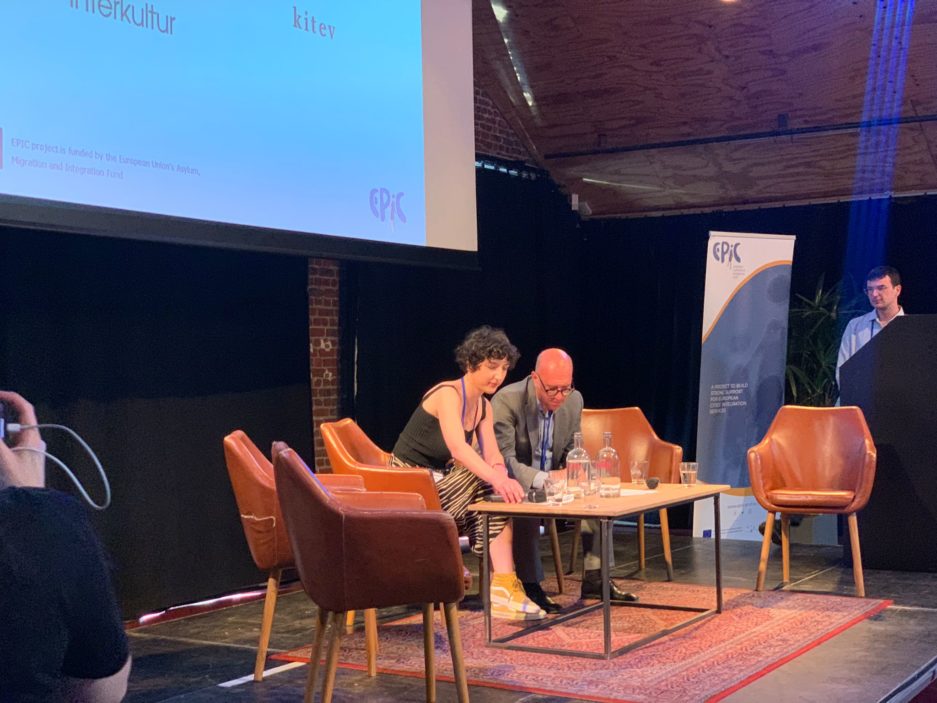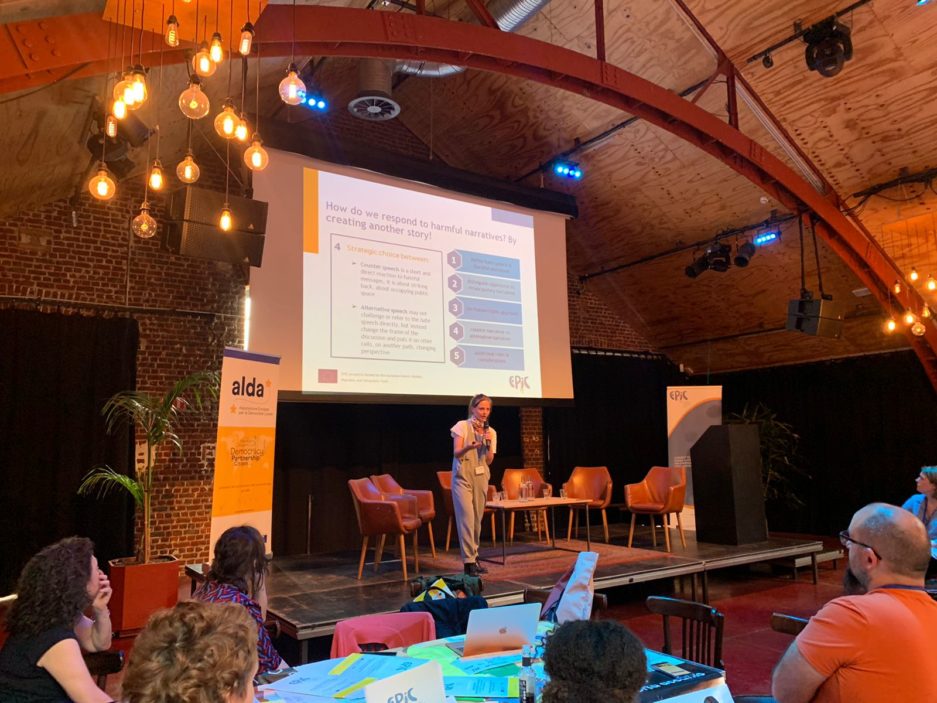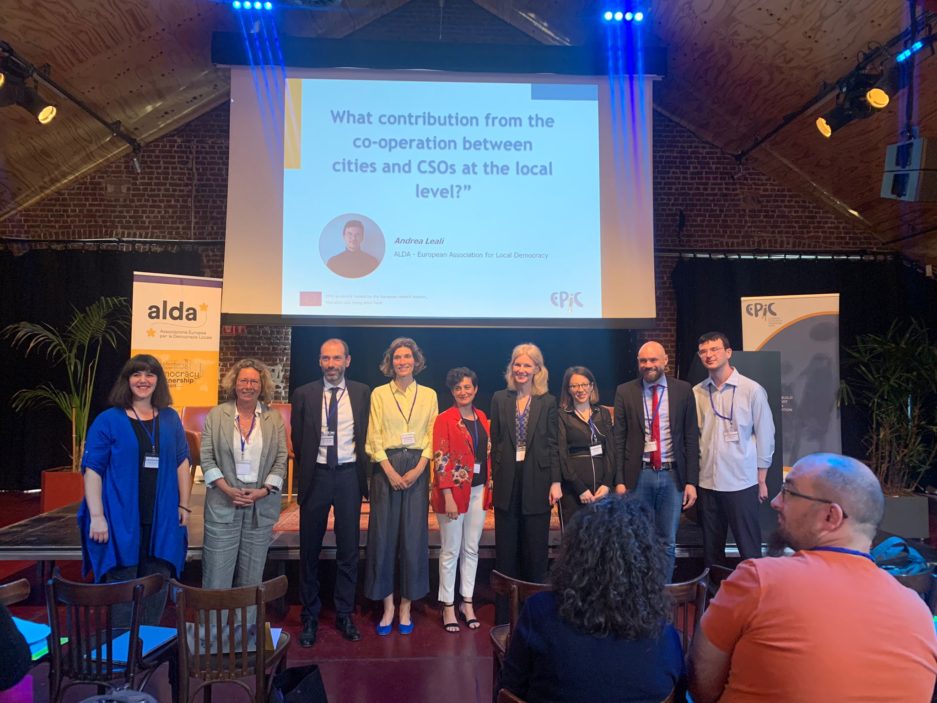
EPIC Final Conference: fostering inclusive societies and building partnerships for integration
On the 7th of June 2023, the European Platform of Integrating Cities (EPIC) concluded its three and-a–half-year project with a grand final conference held in Brussels. The event brought together partners, local stakeholders, and external actors to share and discuss the results achieved during the project. The conference showcased the collective efforts of the EPIC community in fostering inclusive societies – from integration policies to changing the negative narrative about migration.
Welcome:
The conference began with a warm welcome by Andrea Rilievo (ALDA). Participants then watched the EPIC final video, which encapsulated the journey of the project through inspiring testimonials from community members.
Keynote Speech on Local Stakeholder Partnerships:
Luca Barani, Policy Officer at the European Commission (DG HOME) delivered a keynote address highlighting the importance of building multi-stakeholder partnerships at the local level for effective integration policies. While migration policies are predominantly discussed at the national level, Barani highlighted that integration takes place at the local level, in the communities.
Panel Discussion on Strengthening Governance and Territory Contributions:
During the panel discussion on strengthening governance and territory contributions, a distinguished group of experts shared valuable insights and reflections.
Leticia Santaballa of the Yaran Foundation presented the organisation’s commitment to supporting migrants and refugees in rural Galicia, Spain. Their approach focuses on providing a safe and welcoming environment, integrating a 360-degree model of integration that includes tailored approaches, people-centered methods, and a strong emphasis on social aspects. Leticia also emphasised the importance of multi-level governance involving various stakeholders, such as local enterprises, public administrations, third-sector organisations, regional and national governments.
Maria Grazia Montella of CEMR presented the results of the EPIC twin project, IncluCities, which aimed to improve the integration of third-country nationals in medium-sized cities through city-to-city cooperation. The project translated successful practices into seven policy recommendations for local migrant integration. These recommendations were based on challenges and needs identified in various European countries and emphasised holistic integration, a shift towards inclusiveness, an exosystemic approach, meaningful participation including empowering women’s voices, multilevel governance, and cluster-advocacy approaches.
Petra Hueck from ICMC discussed the work of the SHARE network, which focuses on fostering integration between migrants, refugees, and communities in European regions, cities, towns, and rural areas. SHARE supports and connects local initiatives, shares best practices, and advocates for inclusive societies. Key lessons learned from their work include involving migrants and refugees in the co-designing process, informing national levels of outcomes, and establishing practical cooperation through best practice exchange, tool development, synergy identification, research, and piloting new initiatives for scaling up practices.
Milica Petrovic presented EPIM‘s mission to strengthen civil society in creating inclusive communities and humane responses to migration. Supported by 25 private foundations, EPIM funds local institutions and enhances civic space. Milica Petrovic stressed the importance of adopting a multi-stakeholder and multi-level approach to integration, fostering collaboration between different territories and adopting an ecosystem perspective. This means recognising common challenges and understanding the diverse needs of local communities. Finally, she stressed the need for individuals to understand their role within a wider ecosystem, to foster openness to collaboration and to form new alliances for meaningful change.
Luca Musile Tanzi, the Mayor of Salsomaggiore in Italy, a town with 20,000 residents, shed light on the challenges and responsibilities faced by municipalities regarding integration. Luca emphasised that successful integration requires a mutual commitment from both the community and newcomers, and the need to foster solidarity, compassion and inclusivity. Through implementing informed policies, raising awareness about rights and responsibilities, promoting dialogue among stakeholders, and providing comprehensive public services, his municipal project aims to cultivate an inclusive society that benefits all individuals involved.
Memorandum of Understanding:
To consolidate the cooperation between the cities and the civil society organisations (CSOs) involved in the EPIC project, the partners signed a memorandum of understanding. At the signing ceremony, various municipalities committed themselves, such as Sisak and JRS Croatia, Alcorcon and Solidaridad sin Fronteras, Brescia and ADL Zavidovici, Amadora and JRS Portugal, and Oberhausen and Kitev.
Pilot projects :
After a well-deserved lunch break, participants reconvened in a workshop-style setup. Marta Siciarek, from Gdansk Metropolitan City, presented the transfer of practices work, which involved the launch of eight participatory and empowering pilot projects based on the diagnosis of strengths and needs. Each EPIC partner showcased their pilot projects, enabling fruitful discussions and knowledge exchange among attendees.
Changing the Narrative:
Julie de Galard of AEIDL presented the work carried out by EPIC to challenge and change the negative narrative surrounding migration. Through a year-long capacity building process, partners enhanced their skills and knowledge, leading to the launch of eight local communication campaigns. These campaigns were specifically designed to address harmful narratives prevalent at the local level. Attendees had the opportunity to engage with the partners and learn more about their impactful campaigns.
Local Networking Paths Activities:
Andrea Leali from ALDA shared the remarkable networking activities undertaken by EPIC partners at the local level. These activities included a podcast in Brescia, a local conference in Ioanina, workshops and world cafés on labor market integration in Oberhausen, public events in Sardinia addressing various migration-related dimensions, focus groups in Sisak, a public conference in Lisbon, and events focusing on making schools more inclusive in Gdansk. The partners engaged in further discussions, sharing insights and experiences from their respective activities.
Pictures :
